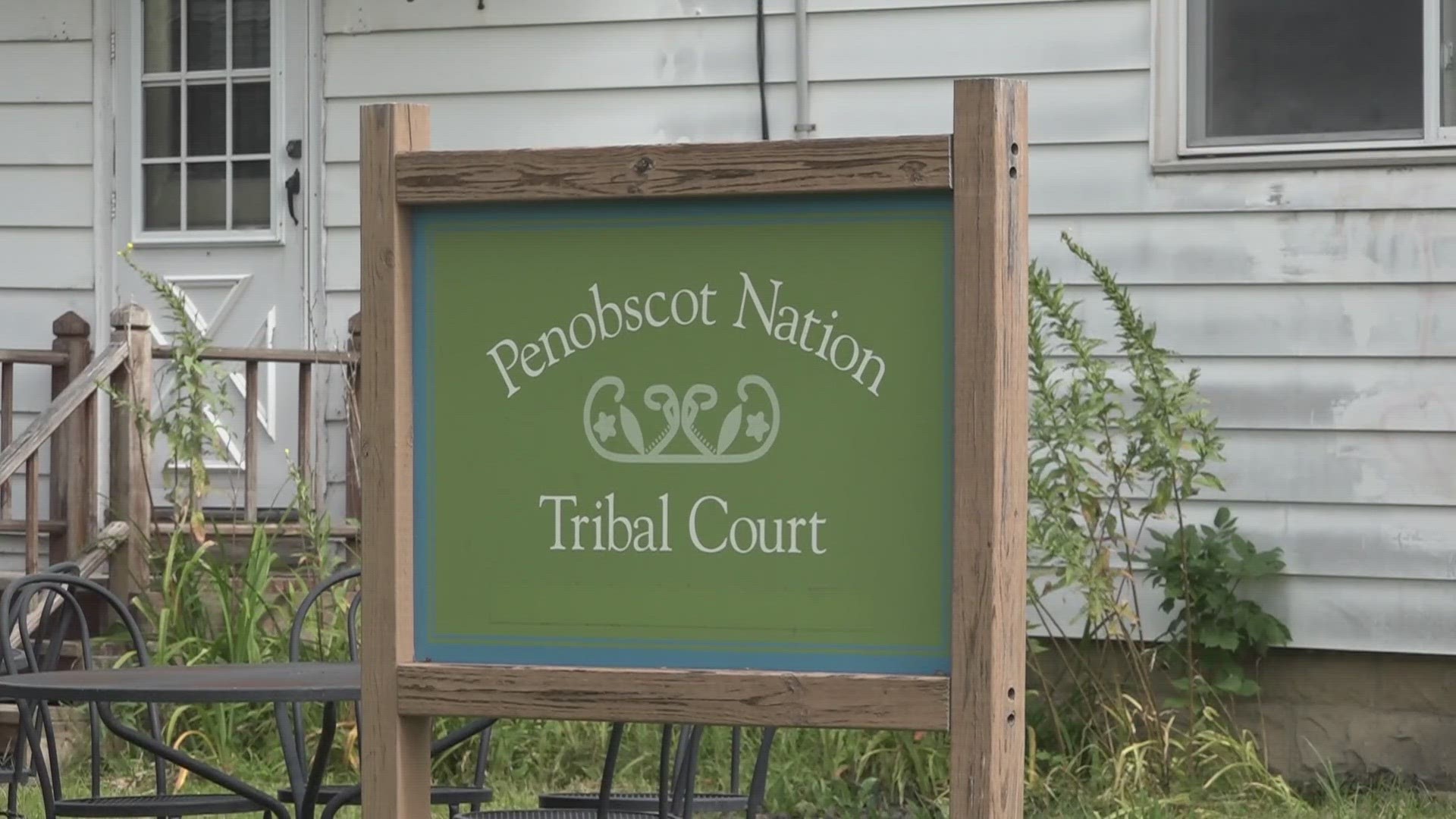INDIAN ISLAND, Maine — In the depths of addiction, Kylee Francis-Fowler of the Penobscot Nation looked to an unlikely place for help—the judicial system. She entered a four-phase program with the tribe’s healing-to-wellness court, all voluntary.
"They got to really connect me with elders in the community, and learning my culture” Francis-Fowler, who is now a peer recovery advocate, said Tuesday.
For her and others on Indian Island, a small reservation across the Penobscot River from Old Town, this kind of treatment is the reason tribal court exists—as an alternative to the state justice system.
It's what Judge Eric Mehnert, who sits on the bench at Indian Island, said the court strives to do.
“It is not about an adversarial system. It's about what are the problems the individuals who come to court face, and how do we solve it,” Mehnert said Tuesday.
But often, the tribal court doesn’t have the jurisdiction to remedy these problems on its own. As a result of the Maine Indian Claims Settlement Act of 1980, the State of Maine has broad power over matters of law and order on tribal land. Any crime that carries a maximum jail sentence of more than one year automatically goes to the state (the federal government, too, can try cases on a reservation). That’s far less leeway than most federally recognized tribes, who can try crimes carrying a maximum of three years and are entitled to under a 2010 law.
To Judge Mehnert, this lack of sovereignty is not the best execution of justice.
“It strikes me that the cases which rise on the reserve ought to be under the sovereign jurisdiction of the tribe,” Mehnert said.
The point is echoed by Penobscot Nation Police Chief Robert Bryant.
“The tribe is just looking for more sovereignty over its land, and that includes offenses committed in tribal territory," Bryant said.
But with little immediate progress towards greater sovereignty, tribal members in Maine live in a three-tiered system of justice, with tribal court at the bottom.

